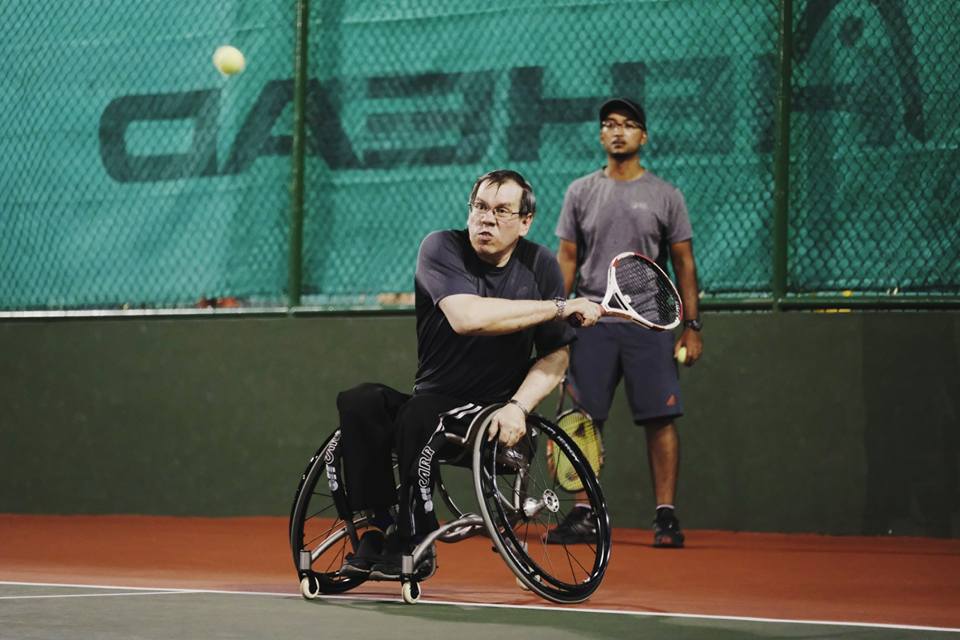
Wheelchair Tennis is a disability sport that made its Paralympic debut in the Summer Paralympics of 1992. Since then, it has grown rapidly to become a sport that is enjoyed by many and practiced in more than 100 countries. Wheelchair Tennis is open to anyone with a medically-diagnosed permanent physical disability that affects their legs. Its rules are largely similar to its Olympic counterpart’s, and the governing body for Wheelchair Tennis is the International Tennis Federation, also known as ITF for short. In Singapore, the relevant body for this sport is the Wheelchair Tennis Association (Singapore).
Much like Olympic Tennis, rackets are used to hit and pass the tennis balls back and forth over a court that is separated by a net in the middle. In order to score, the player has to hit the tennis ball to his opponent’s side of the court without it being returned. However, two key exceptions for Wheelchair Tennis are the use of specially-modified wheelchairs in matches to allow for better balance and mobility, as well as the “two-bounce rule”, where the ball is allowed to bounce twice before the player has to returns it. The second bounce can be within or outside the designated court boundaries.
There are 6 events for Wheelchair Tennis in the Paralympics. They are: Men’s singles and doubles, Women’s singles and doubles, as well as Quad singles and doubles events. In terms of classification, there are two sport classes: open and quad. The ‘Open’ Class is for athletes with permanent impairment of one or both legs, but with normal arm function. The ‘Quad’ Class is for athletes with additional restrictions in the playing arm, which limits the ability to handle the racquet and manoeuvre the wheelchair.
Benefits of Wheelchair Tennis
Wheelchair Tennis provides an extensive list of benefits for the players. It brings about significant positive mental, physical, and social impact. Research has shown that Wheelchair Tennis athletes reflect an increase in confidence level and mental wellbeing from being active in the sport. This translates to greater optimism and opportunities. Through being active in Wheelchair Tennis, players also improve their muscle strength (especially the arm muscles) and enhance their stability, balance and physical coordination. It also raises their sense of spatial awareness and increases their ability to focus on the tasks at hand. In addition, it provides social benefits as the players work with teammates, coaches and other forms of network. As such, Wheelchair Tennis provides an attractive range of benefits and promises athletes an exciting journey towards progress.

